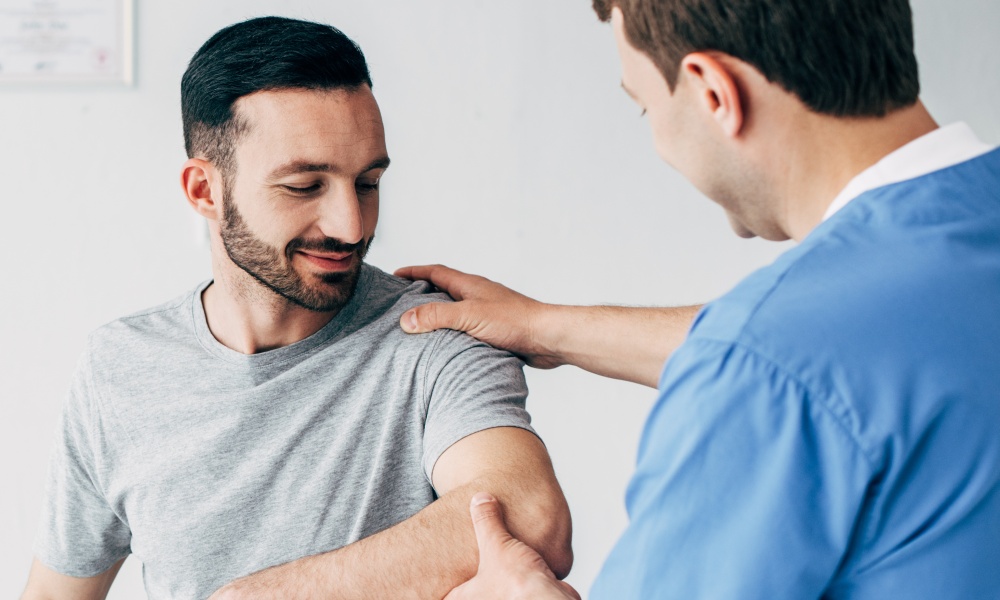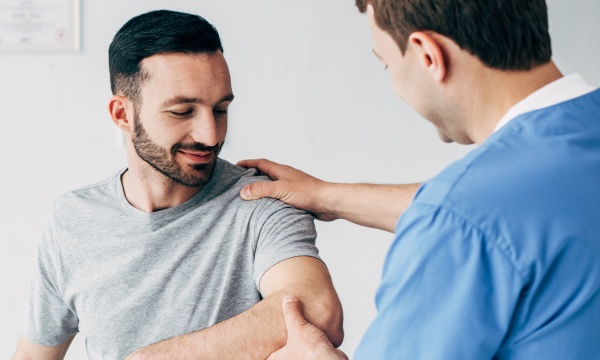Huntington's Disease Center of Excellence


Contact Information
Huntington's Disease Unit
Wang Ambulatory Care Center
15 Parkman Street, 8th Floor, Suite 835
Boston,
MA
02114
Phone: 617-726-5532
Mailing Address
Huntington’s Disease Unit
Mailcode: WACC 8-835
Massachusetts General Hospital
55 Fruit Street
Boston, MA 02114
Clinical Research Coordinator Phone: 617-726-9045
Explore This Treatment Program

About the Center of Excellence
Mass General was designated as one of the first Huntington’s Disease Society of America Centers of Excellence, recognizing our commitment to excellence in both comprehensive clinical care and innovative clinical and basic science research.
About Huntington's Disease
Huntington’s disease is a fatal genetic condition that causes progressive loss of brain cells; these changes cause involuntary movements, changes in thinking, changes in mood and difficulties with voluntary movements and gait. Symptoms usually appear between the ages of 30 and 50 years of age, although symptoms can occur in people who are younger or older. Even within the same family, the age of onset and symptoms can vary considerably.
Children of a parent with HD have a 50 percent change of inheriting the gene that causes the disease. A person who inherits the gene that causes HD will develop symptoms of HD at some point in their lives. Denial of having HD is very common, but it is important to get checked if someone might have some concerns about early changes.
Symptoms can include:
- Personality changes, mood swings & depression
- Forgetfulness & impaired judgment
- Unsteady gait & involuntary movements (chorea)
- Slurred speech, difficulty in swallowing & significant weight loss
Huntington's Disease Clinic
The MGH Huntington’s Disease Clinic is recognized as a Huntington’s Disease Society of Amerrica (HDSA) Center of Excellence for our expertise and multi-pronged approach to the care of patietns and families with Huntington’s disease. It is one of the largest in the country. It provides both multi-disciplinary clinical care to patients as well as access to clinical translational and clinical trials research of emerging novel therapies for HD.
To schedule an appointment, please contact Melanie Williams at 617-726-5532 and choose extension "2."
What to expect at your clinic visit
– Patient in the Huntington's Disease ClinicDr. Penney was amazingly caring and was focused on the situation at hand. She gave me a clear explanation of the next steps going forward with my plan of care. I feel blessed to have her as one of my care providers.
Clinical Research Opportunities
Gaining new knowledge about Huntington’s disease is critical to developing new effective treatments that could prevent the onset of symptoms or slow the progression of disease. The path to discovery is through research. The HD Clinic provides people with HD and their family members an opportunity to participate in research. We are involved in both observational studies (studies that do not require that a study drug be taken, but that provide valuable information about HD onset and HD progression) and interventional clinical trials (studies of new potential treatments that involve taking an experimental medication).
Clinical trial basicsAt each clinic, members of the research team are available to talk about the current research and answer questions about eligibility. You can also contact them directly:
Natalie Yang: 617-726-9045 or nkyang@mgh.harvard.edu
Rachel Kim: 617-726-2042 or rkim25@mgh.harvard.edu
Current Interventional Clinical Trials
Kinect-HD
Open-Label Rollover Study for Continuing Valbenazine Administration for the Treatment of Chorea Associated with Huntington Disease
Valbenazine (valbenazine tosylate, NBI-98854) is a selective, orally active VMAT2 inhibitor developed by Neurocrine Biosciences, Inc. that is being investigated for the treatment of chorea associated with Huntington disease (HD). The study drug, valbenazine, has been approved by the United States Food and Drug Administration (FDA) in 2017 for the treatment of adults with tardive dyskinesia (TD), and in 2023 for the treatment of chorea associated with Huntington disease, under the trade name INGREZZA®.
PROOF-HD
Pridopidine Post Trial Access Protocol in Patients with Huntington’s Disease
Pridopidine is a small molecule which may help to slow functional decline in patients with early HD. This post trial access program is open to individuals who participated in the original parent study, PROOF-HD.
SPK-10001
A Phase 1/2, Randomized, Sequential, Dose-Escalation Study to Evaluate the Safety, Tolerability, and Efficacy of a One-Time, Bilateral, Intraparenchymal Infusion of SPK-10001 Into the Caudate and Putamen in Participants With Huntington’s Disease
This study is evaluating the safety and efficacy of SPK-10001, an investigational gene therapy that is designed to reduce the production of the huntingtin protein. The goal of SPK-10001 is for it to work in the body for a very long time after a single dose to the brain, which may stop or delay the worsening of Huntington's disease.
Current Observational Studies
This study is a global observational study that aims to learn more about how HD appears and changes over time in different people. Patients with HD, people who are at-risk or pre-symptomatic, or community controls are invited to join this study.
This study aims to examine both younger and older patients to attempt to find biologic differences that explain the differences in HD onset and progression.
This study examines to explore the relationship between the human gut and the brain.
The purpose of this study is to better understand the changes that occur in the blood of people that have HD and how these changes are different from normal aging or other diseases that affect the nervous system.
This study is testing advanced Magnetic Resonance Imaging (MRl) methods to understand how relationships between are altered in HD. We are recruiting healthy controls and gene-positive/people with HD.
This study explores the changes that occur over time in the structure of the brain, in brain connections and the changes in function as a result of disease and disease progression.
Our Team
Meet the care team at the Mass General Huntington's Disease Clinic.
Patient and Family Resources
Find resources and assistance for patients and families.
What to Expect at The Clinic
What will happen during your visit to the Huntington's Disease Clinic.
Part of the Movement Disorders Division
We have over 70 years of history providing diagnosis, treatment and support to adult and pediatric patients with a variety of movement disorders.
Support Our Work
Philanthropic support for the Huntington's Disease Center of Excellence is critical to patient care, research and education. Please consider a gift to support neurology research and clinical care today.
